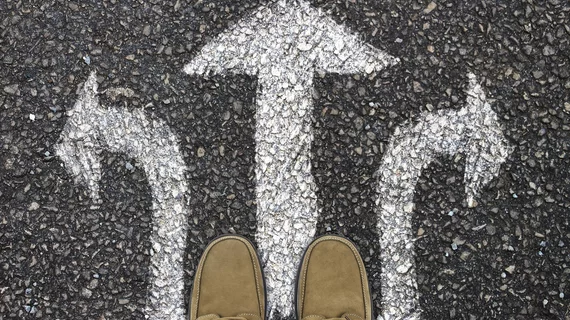Artificial intelligence deters one-sixth of medical students from pursuing radiology
The radiology community has largely accepted that artificial intelligence will positively impact their day-to-day life, but new survey results suggest this train of thought hasn’t yet made its way to medical students.
In fact, about one-sixth of students who would have listed radiology as their top choice did not do so because of AI’s potential impact on the specialty. More than 50% said they had a good understanding of radiology, but only 30% said the same for how AI is being used during imaging.
While most respondents believe such technology will increase radiologists’ efficiency, there are still negative connotations that must be cleared up, experts said Saturday in Clinical Imaging.
“We demonstrated that AI is deterring U.S. medical students from applying to radiology, fueled by both individual concerns and exposure to AI from the medical community,” corresponding author Hwan Lee, with the University of Pennsylvania Perelman School of Medicine’s Department of Radiology, and co-author added. “A considerable degree of concern towards AI remains even among those still considering radiology as a career.”
The findings are based on survey results from 463 students enrolled in schools across the U.S. who responded online between February and April of last year.
Without AI’s potential impact, 21.4% of students ranked radiology as their first choice compared to 17.7% who pondered on AI before deciding.
Similarly, quantitative analysis showed concerns toward AI, fears of decreased job opportunities and a perceived lack of understanding of radiology were all associated with ranking the specialty lower due to artificial intelligence.
Those with prior imaging exposure—such as knowing med students and family members in the specialty, or relationships with attendings and residents—were more likely to disregard AI’s perceived shortcomings.
Reaching these students early in their careers and integrating AI into radiology coursework may help buck this troublesome trend.
“Students desire curricular interventions specifically aimed at AI instruction for career guidance, which are currently in the budding stages,” the authors explained. “The longitudinal effect of such interventions on students' career choice remains to be seen, while it is clear that artificial intelligence continues to shape the future of radiology.”
Read more from the study here.

